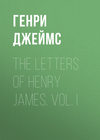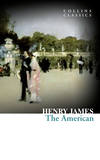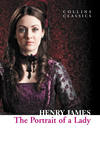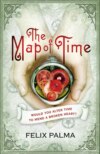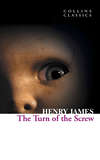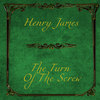Loe raamatut: «The Letters of Henry James. Vol. I», lehekülg 24
To Dr. Louis Waldstein
Lamb House, Rye.Oct. 21st, 1898.
Dear Sir,
Forgive my neglect, under great pressure of occupation, of your so interesting letter of the 12th. I have since receiving it had complicated calls on my time. That the Turn of the Screw has been suggestive and significant to you—in any degree—it gives me great pleasure to hear; and I can only thank you very kindly for the impulse of sympathy that made you write. I am only afraid, perhaps, that my conscious intention strikes you as having been larger than I deserve it should be thought. It is the intention so primarily, with me, always, of the artist, the painter, that that is what I most, myself, feel in it—and the lesson, the idea—ever—conveyed is only the one that deeply lurks in any vision prompted by life. And as regards a presentation of things so fantastic as in that wanton little Tale, I can only rather blush to see real substance read into them—I mean for the generosity of the reader. But, of course, where there is life, there's truth, and the truth was at the back of my head. The poet is always justified when he is not a humbug; always grateful to the justifying commentator. My bogey-tale dealt with things so hideous that I felt that to save it at all it needed some infusion of beauty or prettiness, and the beauty of the pathetic was the only attainable—was indeed inevitable. But ah, the exposure indeed, the helpless plasticity of childhood that isn't dear or sacred to somebody! That was my little tragedy—over which you show a wisdom for which I thank you again. Believe me, thus, my dear Sir, yours most truly,
HENRY JAMES.
To H. G. Wells
The reference in the second paragraph of this letter is to Covering End, the second story of The Two Magics. Mr. Wells was at this time living near Folkestone, distant from Rye by the breadth of Romney Marsh.
Lamb House, Rye.Dec. 9th, 1898.
My dear H. G. Wells,
Your so liberal and graceful letter is to my head like coals of fire—so repeatedly for all these weeks have I had feebly to suffer frustrations in the matter of trundling over the marsh to ask for your news and wish for your continued amendment. The shortening days and the deepening mud have been at the bottom of this affair. I never get out of the house till 3 o'clock, when night is quickly at one's heels. I would have taken a regular day—I mean started in the a.m.—but have been so ridden, myself, by the black care of an unfinished and running (galloping, leaping and bounding,) serial that parting with a day has been like parting with a pound of flesh. I am still a neck ahead, however, and this week will see me through; I accordingly hope very much to be able to turn up on one of the ensuing days. I will sound a horn, so that you yourself be not absent on the chase. Then I will express more articulately my appreciation of your various signs of critical interest, as well as assure you of my sympathy in your own martyrdom. What will you have? It's all a grind and a bloody battle—as well as a considerable lark, and the difficulty itself is the refuge from the vulgarity. Bless your heart, I think I could easily say worse of the T. of the S., the young woman, the spooks, the style, the everything, than the worst any one else could manage. One knows the most damning things about one's self. Of course I had, about my young woman, to take a very sharp line. The grotesque business I had to make her picture and the childish psychology I had to make her trace and present, were, for me at least, a very difficult job, in which absolute lucidity and logic, a singleness of effect, were imperative. Therefore I had to rule out subjective complications of her own—play of tone etc.; and keep her impersonal save for the most obvious and indispensable little note of neatness, firmness and courage—without which she wouldn't have had her data. But the thing is essentially a pot-boiler and a jeu d'esprit.
With the little play, the absolute creature of its conditions, I had simply to make up a deficit and take a small revanche. For three mortal years had the actress for whom it was written (utterly to try to fit) persistently failed to produce it, and I couldn't wholly waste my labour. The B.P. won't read a play with the mere names of the speakers—so I simply paraphrased these and added such indications as might be the equivalent of decent acting—a history and an evolution that seem to me moreover explicatively and sufficiently smeared all over the thing. The moral is of course: Don't write one-act plays. But I didn't mean thus to sprawl. I envy your hand your needle-pointed fingers. As you don't say that you're not better I prepare myself to be greatly struck with the same, and with kind regards to your wife,
Believe me yours ever,HENRY JAMES.
P.S. What's this about something in some newspaper?—I read least of all—from long and deep experience—what my friends write about me, and haven't read the things you mention. I suppose it's because they know I don't that they dare!
To F. W. H. Myers
Lamb House, Rye.Dec. 19, 1898.
My dear Myers,
I don't know what you will think of my unconscionable delay to acknowledge your letter of so many, so very many days ago, nor exactly how I can make vivid to you the nature of my hindrances and excuses. I have, in truth, been (until some few days since) intensely and anxiously busy, finishing, under pressure, a long job that had from almost the first—I mean from long before I had reached the end—begun to be (loathsome name and fact!) "serialized"—so that the printers were at my heels and I had to make a sacrifice of my correspondence utterly—to keep the sort of cerebral freshness required for not losing my head or otherwise collapsing. But I won't expatiate. Please believe my silence has been wholly involuntary. And yet, now that I am writing I scarce know what to say to you on the subject on which you wrote, especially as I'm afraid I don't quite understand the principal question you put to me about "The Turn of the Screw." However, that scantily matters; for in truth I am afraid I have on some former occasions rather awkwardly signified to you that I somehow can't pretend to give any coherent account of my small inventions "after the fact." There they are—the fruit, at best, of a very imperfect ingenuity and with all the imperfections thereof on their heads. The one thing and another that are questionable and ambiguous in them I mostly take to be conditions of their having got themselves pushed through at all. The T. of the S. is a very mechanical matter, I honestly think—an inferior, a merely pictorial, subject and rather a shameless pot-boiler. The thing that, as I recall it, I most wanted not to fail of doing, under penalty of extreme platitude, was to give the impression of the communication to the children of the most infernal imaginable evil and danger—the condition, on their part, of being as exposed as we can humanly conceive children to be. This was my artistic knot to untie, to put any sense or logic into the thing, and if I had known any way of producing more the image of their contact and condition I should assuredly have been proportionately eager to resort to it. I evoked the worst I could, and only feel tempted to say, as in French: "Excusez du peu!"
I am living so much down here that I fear I am losing hold of some of my few chances of occasionally seeing you. The charming old humble-minded "quaintness" and quietness of this little brown hilltop city lays a spell upon me. I send you and your wife and all your house all the greetings of the season and am, my dear Myers, yours very constantly,
HENRY JAMES.
To Mrs. William James
Dictated.
Lamb House, Rye.19th December, 1898.
Dearest Alice,
I have gone on and on most abominably and inexorably owing you a letter since a date so distant that I associate the time intimately with the admirable summer, here, that we so long ago left behind and of which Harry will—at a period by this time quite prehistoric—have given you something of the pleasant little story. But the sense always abides with me that when I am for weeks and months together dumb—as I know I more than once have been—you and William are quite de force to read into it all the kindly extenuations I require. I have in fact, for many weeks, down here, been taking the general line of saving up all the cerebration not imperatively drained off from day to day for a long job that I have had to carry through under the nightmare of belatedness—a belatedness so great (produced by time lost originally in arranging this place, moving down, taking possession, etc.) as to leave me no margin whatever for accident, indisposition or languor. My capacity for the distillation of prose of decent quality remains, alas, with all the amendments time has brought it, still, each day, so limited that I get awfully nervous under a very continuous task unless I by certain flagrant sacrifices keep up to myself the fiction of freshness—of not getting simply sick, in other words, by adding any writing that I haven't absolutely to do to the quantity that is each morning imposed. So the sacrifices, for a long time past, have been, as usual, my correspondence, and as the most tender morsels for the Moloch you and William naturally en première ligne. The Moloch at last, however—since these four or five days, has been temporarily appeased; and I have instantly begun to transfer my attention from one form of belatement to another. I am working off arrears of letters, and if I take you, dearest Alice, in the heap, I at least pay you the sweet tribute of taking you first. You have been without sign or sound of me so long that I daresay you may have even wild imaginings about my "location" and other conditions. I am located only just where Harry left me and where I have stuck fast since July last without the excision of twenty-four hours. The autumn and the early winter have followed the ardent summer here only to multiply my points of contact with my environment and to saturate me more deeply with the grateful sense of it. This contentment has defied all winds and weathers—in plenty of which we have for the last two months rejoiced. I like to send all our little news of such matters in the form of news to Harry in particular, whose mind is furnished with the proper little hooks for it to hold on by. Tell him then, since I won't attempt to burden him individually with acknowledgements that will overload him, that everything he fancied and fondled here only kept growing, all the autumn long, more adapted to such a relation, and that in short both the little brown city and the so amiable countryside were not in July and August a "patch," for charm, colour, "subtlety" and every kind of daily grace, to what they became, in an uninterrupted crescendo, all through October and November. All the good that I hoped of the place has, in fine, profusely bloomed and flourished here. It was really at about the end of September, when the various summer supernumeraries had quite faded away, that the special note of Rye, the feeling of the little hilltop community, bound together like a very modest, obscure and impecunious, but virtuous and amiable family, began most unmistakably to come out. This is the present note of life here, and it has floated me (excuse mixture of metaphor) very placidly along. Nothing would induce me now not to be here for Christmas and nothing will induce me not to do my best at least to be here for the protrusion of the bulbs—the hyacinths and tulips and crocuses—that, in return for expended shillings, George Gammon promises me for the earliest peep of spring. As he has broken no word with me yet, I trust him implicitly for this. Meantime too I have trusted him, all the autumn, for all sorts of other things as well: we have committed to the earth together innumerable unsightly roots and sprigs that I am instructed to depend upon as the fixed foundation of a future herbaceous and perennial paradise. Little by little, even with other cares, the slowly but surely working poison of the garden-mania begins to stir in my long-sluggish veins. Tell Harry, as an intimate instance, that by a masterly inspiration I have at one bold stroke swept away all the complications in the quarter on which the studio looks down, uprooting the wilderness of shrubs, relaying paths, extending borders, etc., and made arrangements to throw the lawn, in one lordly sweep, straight up into that angle—a proceeding that greatly increases our apparent extent and dignity: an improvement, in short, quite unspeakable. But the great charm is the simply being here, and in particular the beginning of the day no longer with the London blackness and foulness, the curtain of fog and smoke that one has each morning muscularly to lift and fasten back; but with the pleasant, sunny garden outlook, the grass all haunted with starlings and chaffinches, and the in-and-out relation with it that in a manner gilds and refreshes the day. This indeed—with work and a few, a very few, people—is the all. But that is just the beauty. I've missed nothing that I haven't been more than resigned to. There have been a few individuals from Saturday to Monday, and one—Jonathan Sturges, whose identity, if it is too dim for you, it would take me too long to explain—ever since mid-October. He remains till over Christmas; but save as making against pure intensity of concentration, he is altogether a boon. I go to town the last of the month, but only for two or three weeks and in a pure picnicking way. I have a plan and a desire really to achieve this winter after an intermission of five years, ten or twelve weeks in Italy; and it now seems probable I shall do so. I shall not know with absolute definiteness till I go to London; but the omens and portents are favourable. On my return I shall come straight down here, and I already foresee how the thought of the spring here will draw me from almost wherever I may at that time be. I shall write you again, however, about this; so that you shall definitely know what becomes of me. You see this is a pure outpouring of the ego. I am after all without fresh news of yourselves to rebound from. The latest and best is William's kind dispatch to me of his "Immortality" lecture, for which I heartily thank him, and which I have read with great appreciation of the art and interest of it. I am afraid I don't very consciously come in to either of the classes it is designed to pacify—either that of the yearners, I mean, or that of the objectors. It isn't the difficulties that keep me from the yearning—it is somehow the lack of the principle of the same. However, I go not now into this. I only acknowledge, till after the turn of the year I write to him, William's communication of the book. Every illustration of his magnificent activity—at the spectacle of which I am condemned to such a woefully back seat—gives me more joy than I will now pretend to express. For the rest, dearest Alice, take from me all my "hopes"; the inevitable vain ones about your household health and happiness and the complexion and outlook of the season for all of you. I try to see you all as cheerfully and gregariously—yet not, for the dignity of each, too much of the latter—fire-lighted and eke furnace-heated. Strange things contend with this image—wild newspaper blizzards and other public bewilderments. Are you individually expanding?—I mean even to the islands of the sea. I myself have no policy. I have no judgment. I am too far and too unadvised and too out of it and too "subtle," also, to see gospel truth in all the so genial encouragement that our swelling state finds, naturally and very logically, in this country. That the two countries should swell together offers material convenience—and that is for much. But I only meant to ask if William and you and the children are definitely in or out of the swell. I will be myself wherever you are.... Yours dearest Alice, always constantly,
HENRY JAMES.
To Charles Eliot Norton
Dictated.
Lamb House, Rye.26th December, 1898.
My dear Charles,
Let me say at once that a great part of the secret of my horrid prolonged dumbness has been just this ugly fact of my finding myself reduced, in my declining years, like a banker or a cabinet minister, altogether to dictating my letters. The effect of this, in turn, has been to give me a great shyness about them—which has indeed stricken me with silence just in proportion as the help so rendered has seemed to myself really to minister to speech. Many people, I find, in these conservative climes, take it extremely ill to be addressed in Remingtonese.... Forgive, however, this long descant on my delays, my doubts and fears, my final jump, rendered thus clumsy by my nervousness....
The worst of such predicaments is, my dear Charles, that when one does write, everything one has, at a thousand scattered moments, previously wanted to say, seems to have dried up with desuetude and neglect. Oh, all the things that should have been said on the spot if they were ever to be said at all! This applies, you will immediately recognise—though it's a stern truth by which I suffer most—very poignantly to all the utterance I feel myself to have so odiously failed of at the time of the death of dear Burne-Jones. I can only give you a very partially lucid account of why on that occasion at least no word from me reached you. I saw myself, heard myself, felt myself, not write—and yet even then knew perfectly both that I should be writing now and that I should now be sorrier than ever for not writing then. It came, the miserable event, at the very moment I was achieving, very single-handed and unassisted, a complicated transfer of residence from London to this place, with all sorts of bewildering material detail (consequent on renovation, complete preparation of every kind, of old house and garden) adding its distraction to the acute sense of pressing work fatally retarded and blighted; so that a postponement which has finally grown to this monstrous length began with being a thing only of moments and hours. Then, moreover, it was simply so wretched and odious to feel him, by a turn of the wheel of fate that had taken but an instant, gone for ever from sight and sound and touch. I was tenderly attached to him, with abundant reason for being, and there was something that choked and angered me beyond what words could trust themselves to express, in the mere blind bêtise of the business. So the days and the weeks went. I went up from here to town, and thence to Rottingdean, for the committal of his ashes, there, to the earth of the little grey-towered churchyard, in sight of the sea, that was at the moment all smothered in lovely spring flowers. It was a day of extraordinary beauty, and in every way a quite indescribably sincere—I remember I could find at the time no other word for the impression—little funeral and demonstration. The people from London were those, almost all, in whose presence there was a kind of harmony.... I had seen the dear man, to my great joy, only a few hours before his death: meeting him at a kind of blighted and abortive wedding-feast (that is a dinner before a marriage that was to take place on the morrow) from which we were both glad to disembroil ourselves: so that we drove together home, intimately moralising and talking nonsense, and he put me, in the grey London midnight, down at my corner to go on by himself to the Grange. It was the last time I saw him, and, as one always does, I have taken ever since a pale comfort in the thought that our parting was explicitly affectionate and such, almost, as one would have wished it even had one known. I miss him even here and now. He was one of the most loveable of men and most charming of friends—altogether and absolutely distinguished. I think his career, as an artistic one, and speaking quite apart from the degree of one's sympathy with his work, one of the greatest of boons to our most vulgar of ages. There was no false note in him, nothing to dilute the strain; he knew his direction and held it hard—wrought with passion and went as straight as he could. He was for all this always, to me, a great comfort. For the rest death came to him, I think, at none so bad a moment. He had, essentially, to my vision, really done. And he was very tired, and his cup was, with all the mingled things, about as full as it would hold. It was so good a moment, in short, that I think his memory is already feeling the benefit of it in a sort of rounded finished way. I was not at the sale of his pictures and drawings which took place after his death—I have not stirred from this spot since I came to it at the end of June; but though I should immensely have cherished some small scrap, everything went at prices—magnificent for his estate—that made acquisition a vain dream.... I have had—and little wonder—scant news of you. I know you've renounced your professorship. I know you felt strongly on public events. But I am in a depressed twilight—of discrimination, I mean—that enables me to make less of these things than I should like to do. So much has come and gone, these six months, that how can I talk about it? It's strange, the consciousness possible to an American here to-day, of being in a country in which the drift of desire—so far as it concerns itself with the matter—is that we shall swell and swell, and acquire and require, to the top of our opportunity. My own feeling, roughly stated, is that we have not been good enough for our opportunity—vulgar, in a manner, as that was and is; but it may be the real message of the whole business to make us as much better as the great grabbed-up British Empire has, unmistakeably, made the English. But over these abysses—into them rather—I peer with averted eye. I fear I am too lost in the mere spectacle for any decent morality. Good-bye, my dear Charles, and forgive my mechanic volubility. Isn't it better to have ticked and shocked than never to have ticked at all? I send my love to all your house....
Your ever, my dear Charles, affectionate old friend,
HENRY JAMES.
